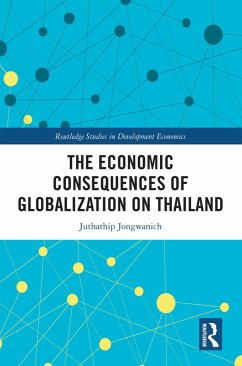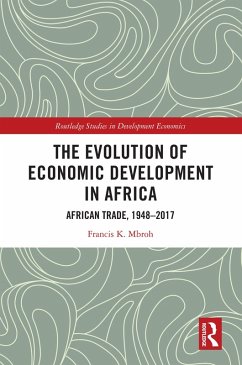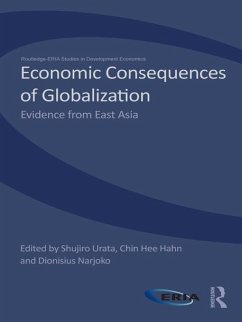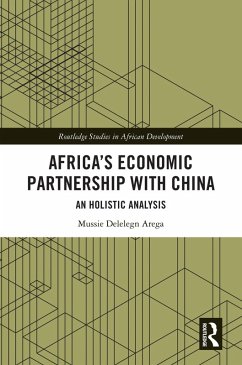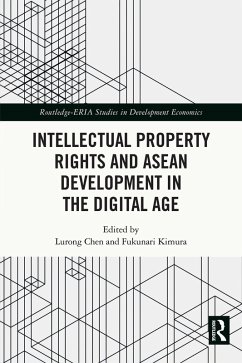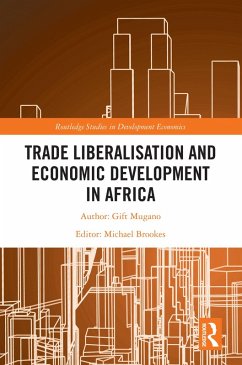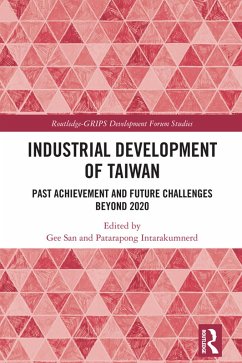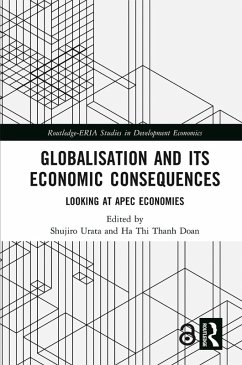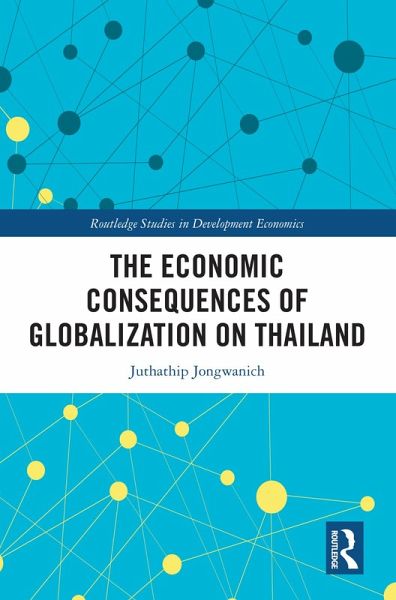
The Economic Consequences of Globalization on Thailand (eBook, ePUB)
Versandkostenfrei!
Sofort per Download lieferbar
41,95 €
inkl. MwSt.
Weitere Ausgaben:

PAYBACK Punkte
21 °P sammeln!
This book explores the impact of globalization, especially in the context of trade and investment policies, on the key economic outcomes, including innovation, productivity, employment, and wages, using Thai manufacturing as a case study. The book looks at the impacts of the shift of manufacturing share from industrialized to emerging countries and emergence of 'global value chains' (GVCs) as well as liberalization through the proliferation of free-trade agreements (FTAs) on key economic outcomes.The book highlights that globalization, through trade (including the parts and components trade) a...
This book explores the impact of globalization, especially in the context of trade and investment policies, on the key economic outcomes, including innovation, productivity, employment, and wages, using Thai manufacturing as a case study. The book looks at the impacts of the shift of manufacturing share from industrialized to emerging countries and emergence of 'global value chains' (GVCs) as well as liberalization through the proliferation of free-trade agreements (FTAs) on key economic outcomes.
The book highlights that globalization, through trade (including the parts and components trade) and investment, continues in Thailand amid the anti-globalization sentiment since the onset of the new millennium, especially the US-China trade war and the COVID-19 pandemic. Thailand has gained considerable benefit from trade and investment liberalization in various forms, including innovation, firm productivity improvements, and workers' skills enhancement. Although the country has prospered in these areas, several further enhancements are needed in order to effectively harness the benefits available from globalization, including continued trade and investment policy reforms. Key policy inferences are provided in the last chapter.
The book will appeal to those with an interest in international economics, especially issues relating to the economic consequences of globalization. It will also appeal to policymakers and practitioners responsible for international trade and investment regulations.
The book highlights that globalization, through trade (including the parts and components trade) and investment, continues in Thailand amid the anti-globalization sentiment since the onset of the new millennium, especially the US-China trade war and the COVID-19 pandemic. Thailand has gained considerable benefit from trade and investment liberalization in various forms, including innovation, firm productivity improvements, and workers' skills enhancement. Although the country has prospered in these areas, several further enhancements are needed in order to effectively harness the benefits available from globalization, including continued trade and investment policy reforms. Key policy inferences are provided in the last chapter.
The book will appeal to those with an interest in international economics, especially issues relating to the economic consequences of globalization. It will also appeal to policymakers and practitioners responsible for international trade and investment regulations.
Dieser Download kann aus rechtlichen Gründen nur mit Rechnungsadresse in A, B, BG, CY, CZ, D, DK, EW, E, FIN, F, GR, HR, H, IRL, I, LT, L, LR, M, NL, PL, P, R, S, SLO, SK ausgeliefert werden.




